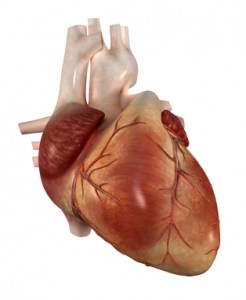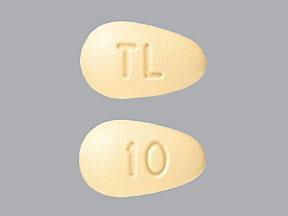Single Dose of Modafinil Improved Memory in People in Remission from Depression
 Modafinil is a wake-promoting medication used to treat narcolepsy, but studies have also shown that it can improve cognition in people with schizophrenia or attention deficit hyperactivity disorder. It may also help people with lingering cognitive difficulties after recovering from a depression. A 2016 article in the journal Biological Psychiatry reported that a single 200mg dose of modafinil improved performance on tests of episodic memory and working memory (but not planning or attention).
Modafinil is a wake-promoting medication used to treat narcolepsy, but studies have also shown that it can improve cognition in people with schizophrenia or attention deficit hyperactivity disorder. It may also help people with lingering cognitive difficulties after recovering from a depression. A 2016 article in the journal Biological Psychiatry reported that a single 200mg dose of modafinil improved performance on tests of episodic memory and working memory (but not planning or attention).
The study by researcher Barbara Sahakian and colleagues included 60 patients who had recently recovered from a depression. They took some cognitive tests to establish a baseline of their performance. A week later, they were given either a placebo or a single dose of modafinil, and two hours later they completed the cognitive tests again. The modafinil group performed better on the memory-related tasks.
While side effects were limited, two participants who received modafinil had sleep disturbances that night.
Longer-term studies are needed to determine whether modafinil is safe and effective if taken over a longer period of time. Cognitive dysfunction can interfere with daily tasks such as work or school and put people at greater risk of relapse, so effective treatments have the potential to greatly improve quality of life for people in remission from depression.
Marker of Heart Failure May Predict Brain Deterioration
 A protein released into the blood in response to heart failure may be able to predict brain deterioration before clinical symptoms appear. The protein, N-terminal pro-B-type natriuretic peptide (NT-proBNP), is released when cardiac walls are under stress. High levels of NT-proBNP in the blood are a sign of heart disease. A 2016 Dutch study indicated that high levels of NT-proBNP in the blood are also linked to smaller brain volume, particularly small gray matter volume, and to poorer organization of the brain’s white matter. The study by researcher Hazel I. Zonneveld and colleagues, published in the journal Neuroradiology, assessed heart and brain health in 2,397 middle-aged and elderly people with no diagnosed heart or cognitive problems.
A protein released into the blood in response to heart failure may be able to predict brain deterioration before clinical symptoms appear. The protein, N-terminal pro-B-type natriuretic peptide (NT-proBNP), is released when cardiac walls are under stress. High levels of NT-proBNP in the blood are a sign of heart disease. A 2016 Dutch study indicated that high levels of NT-proBNP in the blood are also linked to smaller brain volume, particularly small gray matter volume, and to poorer organization of the brain’s white matter. The study by researcher Hazel I. Zonneveld and colleagues, published in the journal Neuroradiology, assessed heart and brain health in 2,397 middle-aged and elderly people with no diagnosed heart or cognitive problems.
Researchers are working to clarify the relationship between cardiac dysfunction and preliminary brain disease, but researcher Meike Vernooij says it is likely cardiac dysfunction comes first and leads to brain damage. Measuring biomarkers such as NT-proBNP may help identify brain diseases such as stroke and dementia earlier and allow for earlier treatment and lifestyle changes that can slow or reverse the course of disease.
Galantamine Did Not Improve Cognitive Deficits in People with Bipolar Disorder
In a recent study by researcher Dan V. Iosifescu and colleagues, the drug galantamine, which is used to treat dementia, did not improve cognitive function in euthymic people with bipolar disorder. The drug had done so in earlier studies. Seventy-two participants with bipolar disorder that was in remission were randomized to receive either a placebo or galantamine extended release for a period of two weeks. Doses of galantamine ranged from 8 to 24 mg/day.
The participants took several tests of attention and memory over the course of the study. After 16 weeks of treatment, those taking galantamine did not show significant improvements in functioning compared to those who received placebo.
This research was presented at the 2016 meeting of the Society of Biological Psychiatry.
Guanfacine Improves Cognition in Schizophrenia
People with disorders on the schizophrenia spectrum often suffer cognition problems that affect skills such as the processing of information about people and social situations (social cognition) and the execution of plans (executive function). At the 2015 meeting of the Society for Biological Psychiatry, researcher Larry J. Siever reported that the drug guanfacine improved these types of thinking in people with disorders on the schizophrenic spectrum compared to placebo. Participants were enrolled in a 7.5-week training program to improve cognition.
Inability to Balance on One Leg May Indicate Stroke Risk
A balance test may indicate declining cognitive health and risk for stroke. Researchers led by Yasuharu Tabara had previously found that balancing on one leg became more difficult for people with age. Now the same team has found that this type of postural instability is associated with decreases in cognitive functioning and with risk of stroke. Fourteen hundred participants with an average age of 67 were challenged to balance on one leg for up to 60 seconds. They also completed computer surveys, magnetic resonance imaging (MRI) scans, and a procedure to measure the thickness of their carotid artery. Those who could not balance on one leg for 20 seconds or longer were more likely to have cerebral small vessel disease.
Editor’s Note: Whether exercise would reverse this vulnerability remains to be seen, but lots of other data suggest the benefit of regular (even light) exercise on general health.
More Evidence Vortioxetine Improves Depression and Cognitive Function
 Vortioxetine (Brintellix) is a relatively new antidepressant that has a range of effects on serotonin receptors, making it different from selective serotonin reuptake inhibitors (SSRIs), which work only on the serotonin transporter. In multiple studies, it has treated not only depression but also cognitive dysfunction. In a new study led by Atul Mahableshwarkar and published in the journal Neuropsychopharmacology, 10–20 mg/day of vortioxetine reduced symptoms of depression more than placebo and improved performance on tests of cognitive ability more than placebo and another antidepressant, duloxetine.
Vortioxetine (Brintellix) is a relatively new antidepressant that has a range of effects on serotonin receptors, making it different from selective serotonin reuptake inhibitors (SSRIs), which work only on the serotonin transporter. In multiple studies, it has treated not only depression but also cognitive dysfunction. In a new study led by Atul Mahableshwarkar and published in the journal Neuropsychopharmacology, 10–20 mg/day of vortioxetine reduced symptoms of depression more than placebo and improved performance on tests of cognitive ability more than placebo and another antidepressant, duloxetine.
While depression is often accompanied by cognitive dysfunction, in this study vortioxetine seemed to directly treat the cognitive deficits rather than reducing them by alleviating the depression. The participants were aged 18–65.




